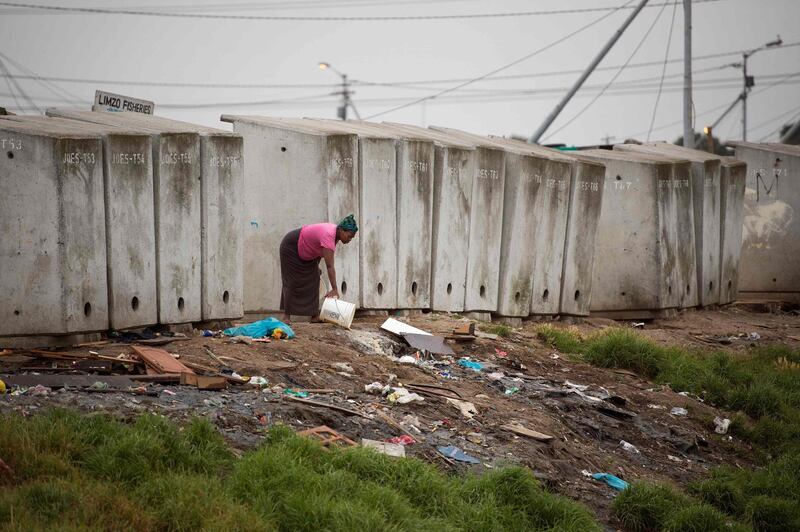The United Nation's 2030 Agenda, including the Sustainable Development Goals, is revolutionary in its ambition: leave no one behind. This blueprint for sustainable development, adopted by the UN in 2015, envisioned a better world for all people. After three years of implementation, countries are slowly starting to put policies, plans, and even a few budgets in place to meet this ambition. Yet how can we track progress on the Sustainable Development Goals when about two-thirds of the indicators have no data?
Although there are very serious data challenges in our collective efforts to track the Sustainable Development Goals, several promising trends give us hope that we are heading in the right direction.
First, there is broad recognition of the importance of a social contract regarding statistics and people. Countries around the world are focusing on how we build and sustain trust in our data and in the decisions supported by this data. We must not take this trust for granted. We need to earn it continuously, defend it proactively, and treat it as the foundation upon which we operate. Trust is the currency with which we earn the opportunity to influence public discourse and decision making.
Building and reinforcing trust up and down the data value chain starts first with transparency. Over the last five years both the public and private sectors – including the Bill and Melinda Gates Foundation, the Wellcome Trust, Siemens, Unilever, and NASA – have instituted data-sharing policies that promote the free use and re-use of data and improved accessibility through open data portals. Our own organization, the World Bank Group, has made access to data a core tenet and part of our commitment to sharing knowledge to improve people’s lives.
Citizens can have a big impact, particularly at the beginning, in shaping the priorities and demand for data. This could mean that national statistics offices will play a more dynamic role in partnering with citizens and civil society involved in the production and use of data for sustainable development, actively building trust and tapping into important new sources of data. For example, India has over 3 million civil society organizations, many with the capacity to gather data, connect scientists to local change makers, and catalyze improvements in monitoring social conditions. Finding ways to align and collaborate, including leveraging citizen-generated data, is important to the future of the development data discourse and will support more effective tracking of progress on the Sustainable Development Goals.
Second, there is recognition that a key role of data in policy-making is to make the invisible visible. Data at the national and sub-national levels should be disaggregated by age, gender, socio-economic position, migration status, and other characteristics. With accurate, representative, inclusive, and disaggregated statistics we can identify who is lagging behind and by how much, and consequently pursue targeted policies to address their challenges.
Inclusion in statistics often begins with inclusion in society. Even with the unprecedented number of new initiatives and approaches for the improvement of data production, ‘leaving no one behind’ is often challenging in some low- and middle-income countries where forms of identification may not be common. While improvements have been made in countries like Peru and India, where national statistical offices began publishing disaggregated data, many countries suffer from a lack of capacity. This is a critical mission for initiatives like Identification for Development (ID4D), which estimates 1.1 billion people worldwide cannot officially prove their identity, and almost half of these are children whose births are not registered. When they die, we are unlikely to know why, missing the chance for these tragedies to inform policies that could improve the health of future generations. For these people to be counted in official statistics and to have access to the opportunities created by economic growth, they need to have a formal record of their existence.
Third, there is huge potential for the transformational role of new technologies in the development data space. While we recognize that we cannot predict the impact of specific technologies, we can predict that the cost of gathering, analyzing, and visually representing data will continue to fall rapidly. The big data revolution is helping governments reimagine solutions and improve service delivery to achieve the Sustainable Development Goals. For example, in Haiti mobile phones are being used to connect urban residents to jobs, services, and economic opportunities. In the Philippines, governments are using GPS data from taxis to reduce accidents and improve emergency services. World Bank Group projects are using big data and artificial intelligence to help governments better monitor policies to achieve the Sustainable Development Goals, often working with partnerships driving this work. While there are important concerns and risks associated with big data (including privacy risks), this evolving technology offers tremendous opportunities for improving development outcomes for people.
Yet still, a major impediment to progress is the current need for greater and more predictable finance. The keys to achieving the Sustainable Development Goals’ promise of leaving no one behind include investments in data innovation, data interoperability and reproducibility, and strengthening systemic statistical capacity. This will require greater levels of spending at both the domestic and international levels. We also need to spend smarter. Data assets are often under-utilized. We have to unleash the potential of the data we have collected and improve coordination of domestic and international support.
Just eleven years remain for us to achieve the ambitious 2030 Agenda. The UN World Data Forum and its Dubai Declaration were a landmark opportunity to encourage countries to plan for predictable financing in their national data and statistical efforts. The data revolution is possible, and once we get the investments right, build national capacity, and harness the innovations that new and disruptive technology can bring, we will have the platform to help ensure that no one is left behind.
Mahmoud Mohieldin is senior vice president for the 2030 Development Agenda, United Nations Relations and Partnerships and Haishan Fu is director at Development Economics Data Group






